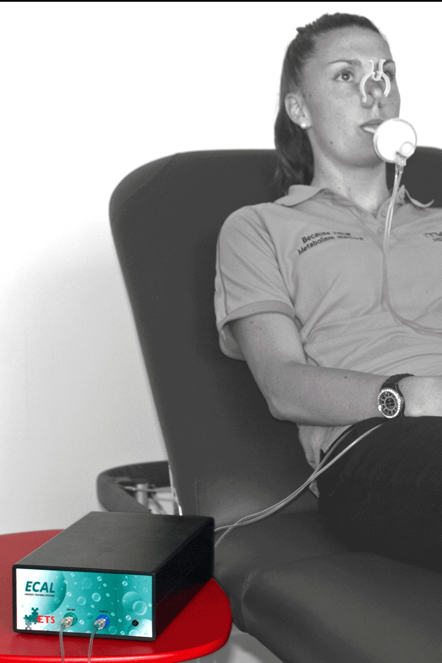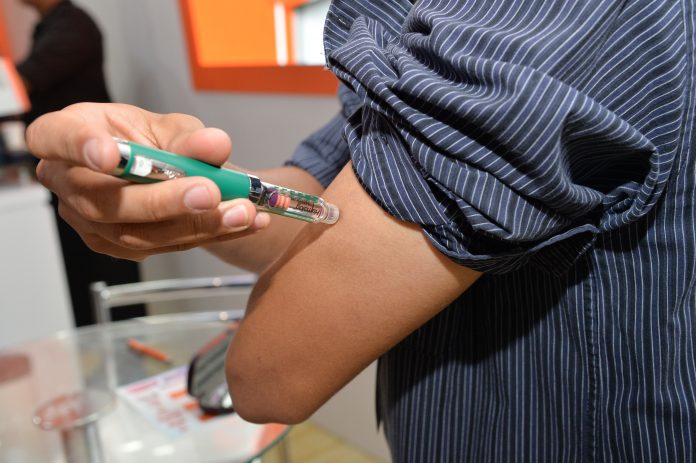Peter Robins, from Metabolic Health Solutions (MHS), describes how a new clinical management tool can help individualise treatment of obesity and Type 2 diabetes
The number of people diagnosed with diabetes in the UK has doubled in the last 20 years and is responsible for 26,000 early deaths per year alongside serious complications such as blindness, amputation or stroke.
According to NHS Digital, the cost of prescription medication in 2018 exceeded £1 billion, an increase of more than £420 million since 2008. However, the cost of medication represents only a small fraction of the total burden (>£14 billion), such is the devastating and expensive complications associated with the disease(1,2).
Approximately 90% have Type 2 diabetes (T2D), a progressive condition characterised by diminished rates of fatty acid oxidation in the fasting state and the inability to efficiently switch to glucose oxidation in the post-prandial state(3). This phenomenon, which invariably associates with excess weight, has been termed metabolic inflexibility(4,5) and results in insulin resistance together with a steadily progressive beta cell defect.
“I have used an ECAL machine in my General Practice for 1 year in a total of 35 patients with significant obesity, pre-diabetes, and diabetes. It is now an invaluable tool, I would now not wish to be without…
“Patients are significantly more motivated than when discussing weight, bloods or waist alone. Through dietary change and regular tests patients immediately see and track the effect on their ability to burn fat which is directly related to insulin and insulin resistance…
I can see huge potential for this in the health service.”
GP – Dorset, UK
Recent studies including DiRECT6 have demonstrated that through restrictive diets, remission of T2D is possible with the added potential benefit of significant weight loss.
Some examples of the restrictive diets used to treat T2D include:
• Very low calorie – 830 calories per day (DiRECT)
• The ketogenic diet
• Low carbohydrate – Healthy fat (LCHF)
• Intermittent fasting (Dr Michael Mosely 5:2)
These dietary interventions have all demonstrated some success up to 12 months, but longer-term results have yet to be determined and these strategies are unlikely to be overly successful unless permanent lifestyle changes that improve the underlying metabolic dysregulation are maintained.
It is also increasingly recognised that an individualised approach to diabetes management may result in greater long-term success for many patients. Given the importance of weight loss for diabetes outcomes, effective management should consider individualised nutrition and exercise advice alongside pharmacology. In 2018 Diabetes UK updated its nutrition guidelines to reflect this requirement for an individualised approach to therapy(7).
This may involve a sustained focus on lifestyle strategies, personalising individual dietary programmes, refining and auditing exercise strategies for both short and long term outcomes and finally reviewing the adequacy and relevance of continued prescribing, given measured lifestyle adaptations. The challenge for public health is that individualised care is costly to implement and often difficult to evidence; however, these challenges could be lessened if there was a better understanding of the metabolic dysregulation of the patient at the start of and through the therapeutic process of diabetes management.
“ECAL highlighted high RQ (0.99) – patient reduced carbohydrate and optimised protein intake. The weight which was stuck at around 110-112kg dropped to 105.4kg in 6 months. Patient is less tired, has more energy and is more active.”
ZC. NHS Dietitian – UK
For example, measuring metabolism using indirect calorimetry and pathology provides significant information regarding the level of energy requirements and fat oxidation of the individual8. This immediately provides the opportunity to identify calorie load and perhaps, more importantly, tailor the macronutrient composition for the diet to support improved fat oxidation. Regular body composition measurements can then assess whether the weight loss is from endogenous fat stores or from lean tissue.
It is well understood that patients metabolise fat and carbohydrates differently. Their ability to switch between the fuels is impaired in diabetes and in many other common chronic diseases. Individualisation is called for but this is difficult to achieve without evidence from the patient. This evidence cannot be assumed or determined by population-based approaches; it must be measured.
MHS have commercialised low-cost metabolic measurement technology to better clinically individualise a patient’s metabolic profile. This device (ECAL), validated against existing research-grade equipment is certified as a medical device in the European Union and elsewhere.
Unlike traditional approaches, ECAL provides a number of key parameters that allows clinicians and health practitioners, for the first time, to individualise therapy for patients, based on the measured metabolic need. These parameters include:
Resting metabolic rate
– The base daily energy requirement of the patient
Respiratory exchange ratio (RER/RQ)
– What proportion of daily energy is derived from fats and or carbohydrate? Therefore, an indication as to how metabolically flexible a patient is
Mitochondrial efficiency
– A measure of how efficient and fit their cells are at generating energy
Standard practice is to estimate one of these parameters and ignore the other two. This is because, until recently, this information has not been readily available for clinical and allied health use as current technology is too complex, cumbersome, expensive and time-consuming.
However, measuring these parameters can now be conducted via an affordable, simple, 5-8 minute breathing test. Each person’s profile is highly individual and this information allows the practitioner to give the patient-tailored advice on the amount and makeup of their diet to ensure they lose weight in a healthy manner. Regular testing over time allows the practitioner to validate results, adjust diet and exercise prescription to suit the patient.
Test results are provided in an easy to read and understandable format with graphical representation to help the client understand their individual metabolism which can be motivating. For example, how they have reacted to dietary change? Are they metabolising more of their body fat and how is exercise improving their weight loss and health?
Measuring a patient’s metabolism allows the health care professional to individualise treatment and embed permanent lifestyle change for their clients to manage their weight and metabolism over time.
References
1.) https://www.bbc.com/news/health-46139595
2.) https://www.diabetes.co.uk/diabetes-prevalence.html
3.) https://journals.plos.org/plosone/article?id=10.1371/journal.pone.0051648#pone.0051648-Kelley1
4.) http://journals.plos.org/plosone/article?id=10.1371/journal.pone.0051648#pone.0051648-Kelley2
5.) http://journals.plos.org/plosone/article?id=10.1371/journal.
pone.0051648pone.0051648-Corpeleijn1
6.) Lean ME, Leslie WS, Barnes AC et al. Primary care-led weight management for remission of type 2 diabetes (DiRECT): an open-label, cluster-randomised trial. Lancet 2017; 391: 541 – 51.
7.) https://www.diabetes.org.uk/professionals/position-statements-reports/food-nutrition-lifestyle/evidence-based-nutrition-guidelines-for-the-prevention-and-management-of-diabetes
8.) https://www.sciencedirect.com/science/article/pii/S0261561418326037

“Her ECAL results indicated a high RQ i.e. carbohydrate was being used as her primary fuel source, increasing her insulin resistance over time. I advised some dietary changes, to increase her fat utilisation.”
“In 26 days, I have lost over 11 pounds and my body shape has really started to change too. I would encourage anyone who is ‘stuck’ to take this approach – you won’t be disappointed!”
DR. Nutritionist UK
Peter Robins
Metabolic Health Solutions (UK) Ltd
Tel: +44 (0)7850 020 115
Peter.robins@metabolichealthsolutions.co.uk
www.metabolichealthsolutions.co.uk
*Please note: This is a commercial profile











